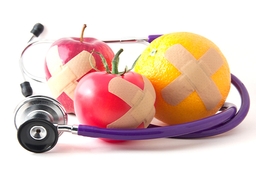What Should I Eat for a Healthy Liver?

The liver is an essential organ in the digestive system. Everything we consume, including pharmaceuticals, must pass through the liver, so we must keep it healthy and functional.
Healthy eating plate
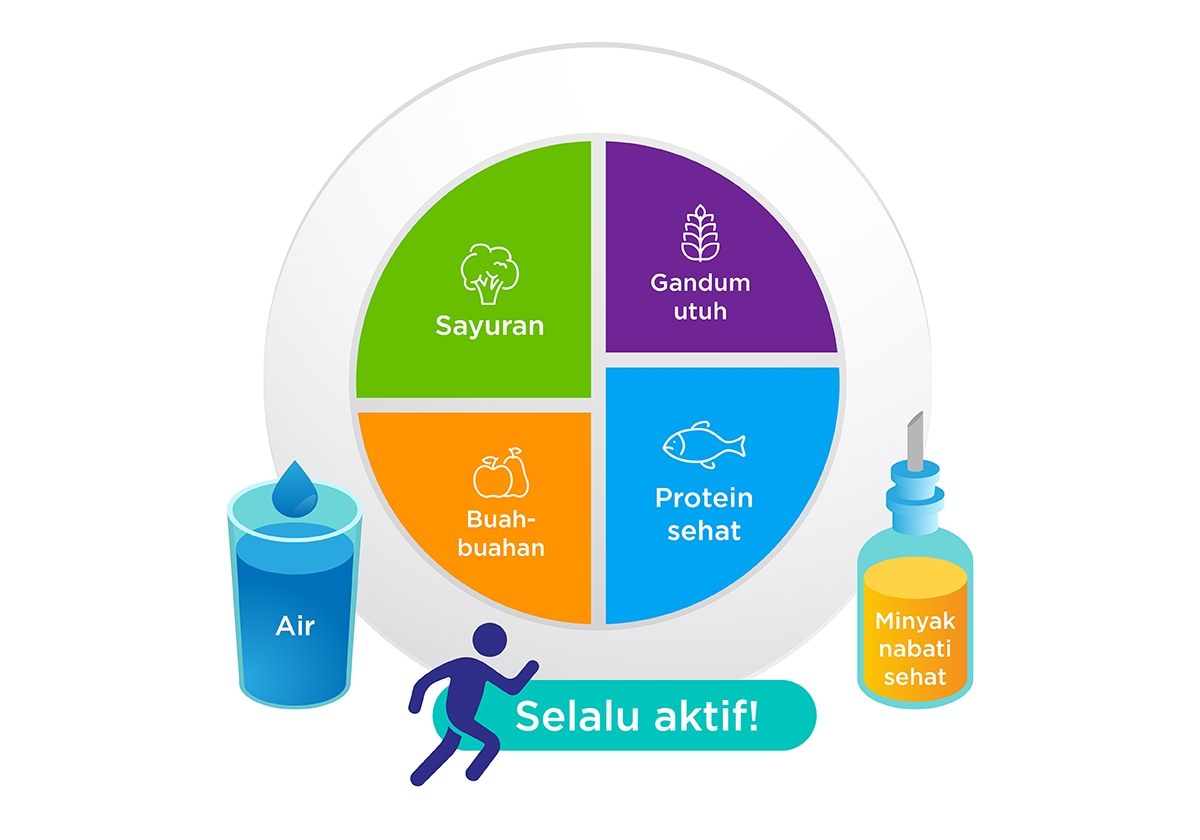
Healthy oils
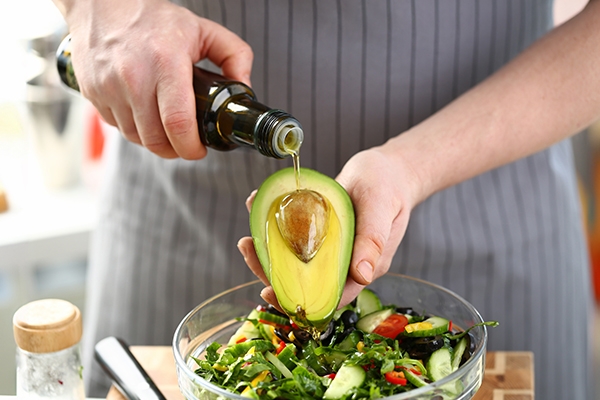
To maintain health, let's pay attention to our fat intake. Replace regular cooking oil with olive or canola oil rich in healthy fats. Also, add these oils to salads to add flavor. Limit your butter consumption and avoid trans fats.
Green vegetables

Consuming vegetables, especially green leafy vegetables like spinach, kale, and arugula. Green vegetables contain chlorophyll, detoxing the body from heavy metals and harmful chemicals like pesticides.
Fruits

Consume more fruits, especially berries, to improve your liver health. Blueberries, strawberries, and raspberries are rich in antioxidants that protect liver cells from harm. Polyphenols in berries also help the liver detoxify the body and reduce inflammation. Remember to wash your fruit before eating it to remove any pesticides.
Water

Drink plenty of water—2 liters/day or 6–8 glasses/day-- to keep your liver healthy. Unsweetened coffee and tea can also be an option. Limit your intake of milk, dairy products, and fruit juices. Avoid sweetened drinks.
Coffee and green tea contain compounds suitable for the liver, such as diterpenes in coffee and catechins in green tea. These compounds have anti-inflammatory and antioxidant properties that help protect the liver.
Research shows that catechins can help reduce the risk of NAFLD (nonalcoholic fatty liver disease) and that catechins in green tea also help prevent liver cancer.
Whole grains
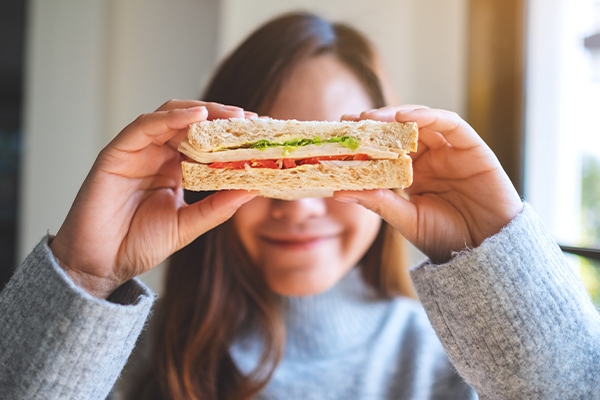
Whole-grain foods such as wheat bread and brown rice provide more complete nutrients. Limit your consumption of processed wheat and white bread. Whole grains are rich in fiber, which is good for digestion.
Healthy protein
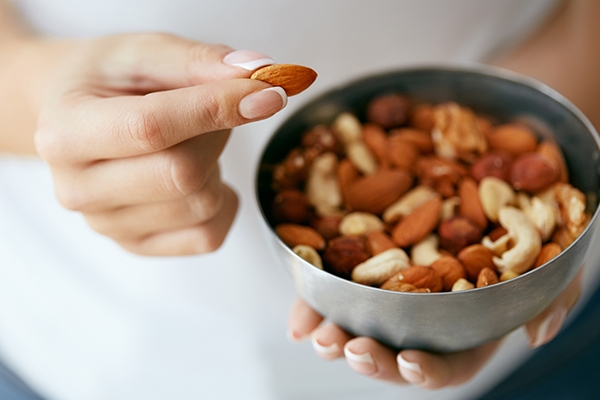
To keep your liver healthy, eat healthy protein sources such as fish (salmon, mackerel), poultry, nuts (especially walnuts), and seeds. Limit your diet of red meat and cheese, and avoid processed meat.
Nuts, especially walnuts, contain healthy fats, antioxidants, and essential nutrients such as vitamin E. These elements help protect the liver from oxidative stress and inflammation. Walnuts, in particular, are high in glutathione and omega-3 fatty acids, which help detoxify the liver.
Adding nuts as a snack or to salads and dishes can substantially impact liver health benefits. Fatty fish, such as salmon, mackerel, and sardines, are rich in omega-3 fatty acids.
These healthy fats are anti-inflammatory, reducing liver inflammation and promoting cell regeneration. Omega-3s also help lower triglyceride levels, which can help avoid fatty liver disease. Consume fatty fish at least twice a week to support liver health.
Garlic
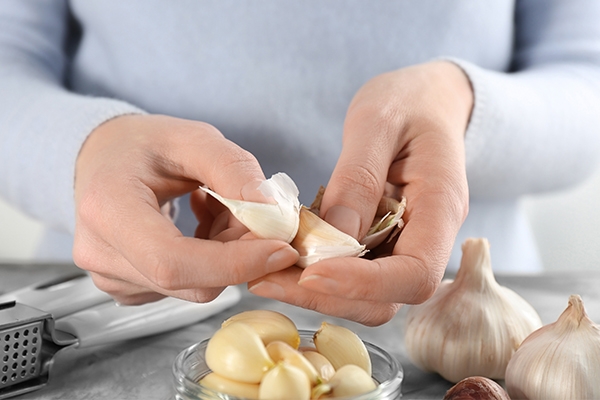
Garlic is a beneficial herb for liver health. Its sulfur content stimulates liver enzymes that function for detoxification. In addition, allicin and selenium in garlic also protect the liver from harm. Regular garlic consumption has been shown to promote liver health.
Turmeric
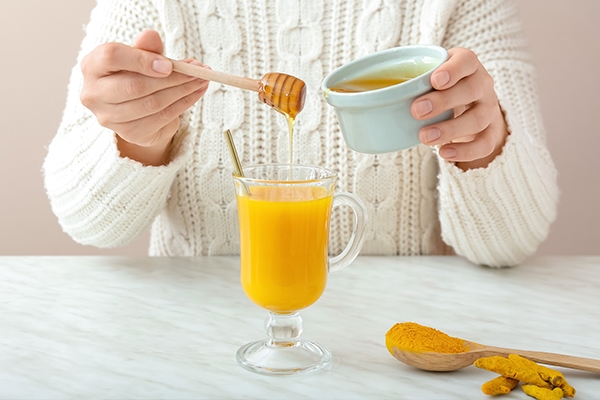
Turmeric contains curcumin, which has potent anti-inflammatory and antioxidant effects. Turmeric can help reduce liver inflammation and enhance liver function.
Foods to avoid
Here are some food groups that are harder for the liver to process. These include:
- Fatty foods include fried foods, fast foods, and foods often found in restaurants. Packaged snack foods and chips are also high in fat.
- Starchy foods: These include bread, pasta, cakes, and baked goods that are low in fiber and highly processed.
- Sugar: Limiting sugary and sugary foods—such as cereals, baked goods, and candy—can help reduce liver stress.
- Salt: Lowering your salt intake includes cutting back on snacks, choosing low-sodium canned meats or vegetables, and limiting or avoiding processed meats and salted bacon.
- Alcohol. The liver breaks down alcohol so it can be excreted from the body. Consuming alcohol for a long time and in large amounts is toxic and can trigger inflammation and liver cell damage.
The food we eat every day has a significant influence on liver health. Food nutrients help to detoxify, restore, and protect the body.
A balanced diet combined with a healthy lifestyle, such as regular exercise and adequate sleep, can help the liver detoxify and regenerate cells. Make these liver-friendly foods a regular part of your diet, and enjoy the benefits of a healthier liver.


